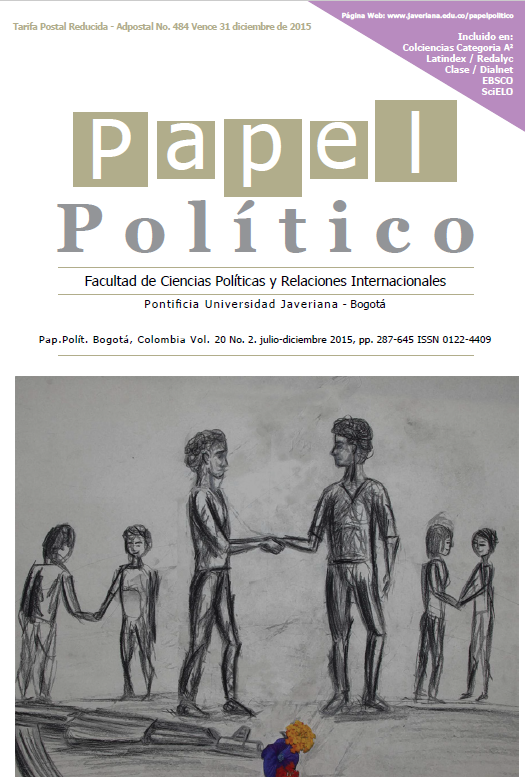Abstract
This article addresses, from an interdisciplinary perspective, the impact of the long and torturous state-building process in Latin America on the development of regionalization processes in the subcontinent. Firstly, it contrasts classical and contemporary ideas of sovereignty in order to establish, in a differentiated form and from a historic perspective, the manner in which said principle has taken form in the state-building and regionalization processes in both Latin America and Europe. Secondly, it outlines the role of ideas such as Pan-Americanism, Latin-Americanism, South-Americanism and Bolivarianism in the development of the regionalization processes in Latin America. Thirdly, this article defines the characteristic features of the three waves of integration and the reluctance of Latin American states to transfer sovereignty to regional governance structures. Fourthly, it establishes the differences in historic circumstances which have influenced different perspectives on the transfer of sovereignty in the construction of the Latin American and European regions. Finally, from the understanding of the problem of unfinished state-building in Latin America, this article evaluates the development of current regionalization process.
Esta revista científica se encuentra registrada bajo la licencia Creative Commons Reconocimiento 4.0 Internacional. Por lo tanto, esta obra se puede reproducir, distribuir y comunicar públicamente en formato digital, siempre que se reconozca el nombre de los autores y a la Pontificia Universidad Javeriana. Se permite citar, adaptar, transformar, autoarchivar, republicar y crear a partir del material, para cualquier finalidad (incluso comercial), siempre que se reconozca adecuadamente la autoría, se proporcione un enlace a la obra original y se indique si se han realizado cambios. La Pontificia Universidad Javeriana no retiene los derechos sobre las obras publicadas y los contenidos son responsabilidad exclusiva de los autores, quienes conservan sus derechos morales, intelectuales, de privacidad y publicidad.
El aval sobre la intervención de la obra (revisión, corrección de estilo, traducción, diagramación) y su posterior divulgación se otorga mediante una licencia de uso y no a través de una cesión de derechos, lo que representa que la revista y la Pontificia Universidad Javeriana se eximen de cualquier responsabilidad que se pueda derivar de una mala práctica ética por parte de los autores. En consecuencia de la protección brindada por la licencia de uso, la revista no se encuentra en la obligación de publicar retractaciones o modificar la información ya publicada, a no ser que la errata surja del proceso de gestión editorial. La publicación de contenidos en esta revista no representa regalías para los contribuyentes.


